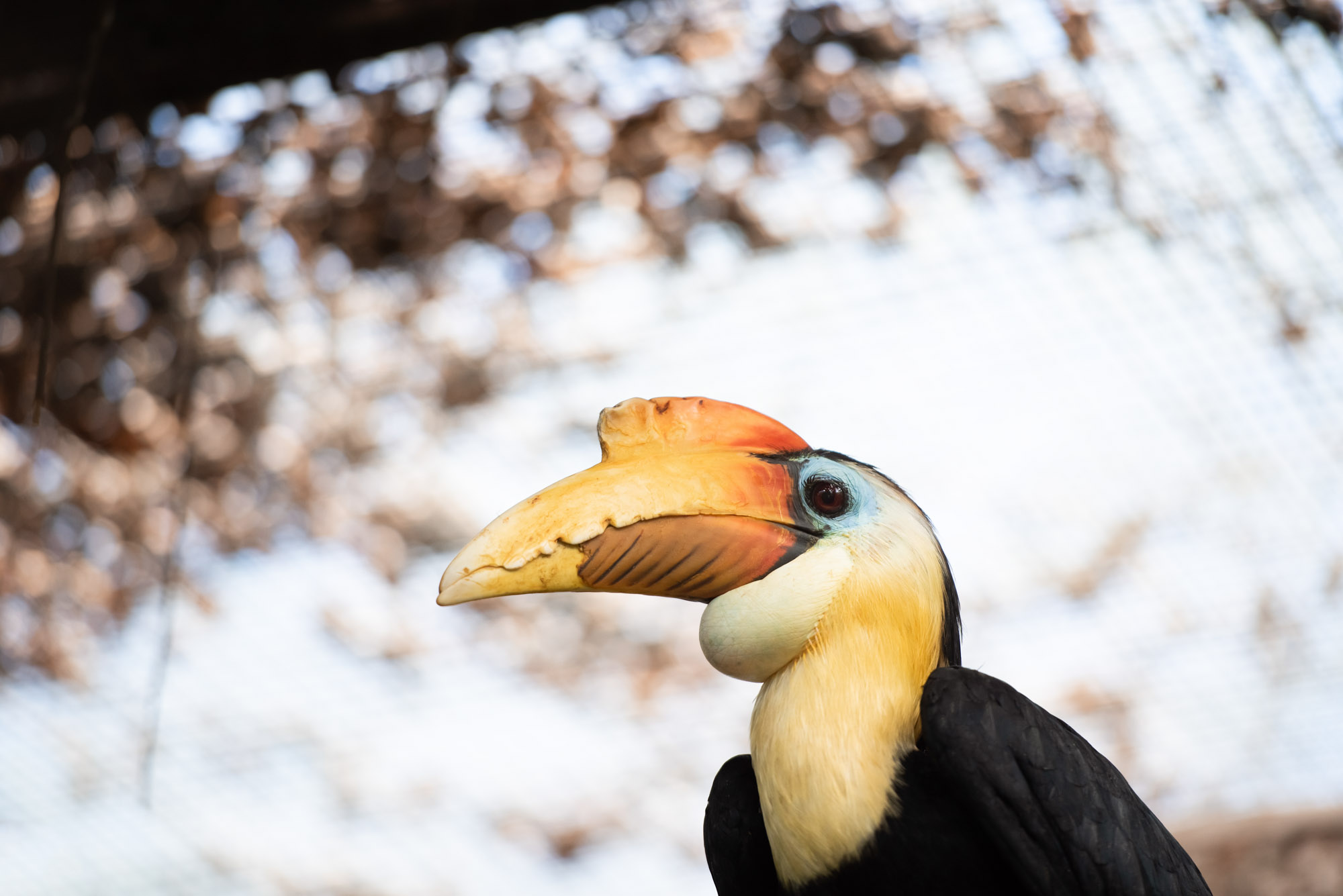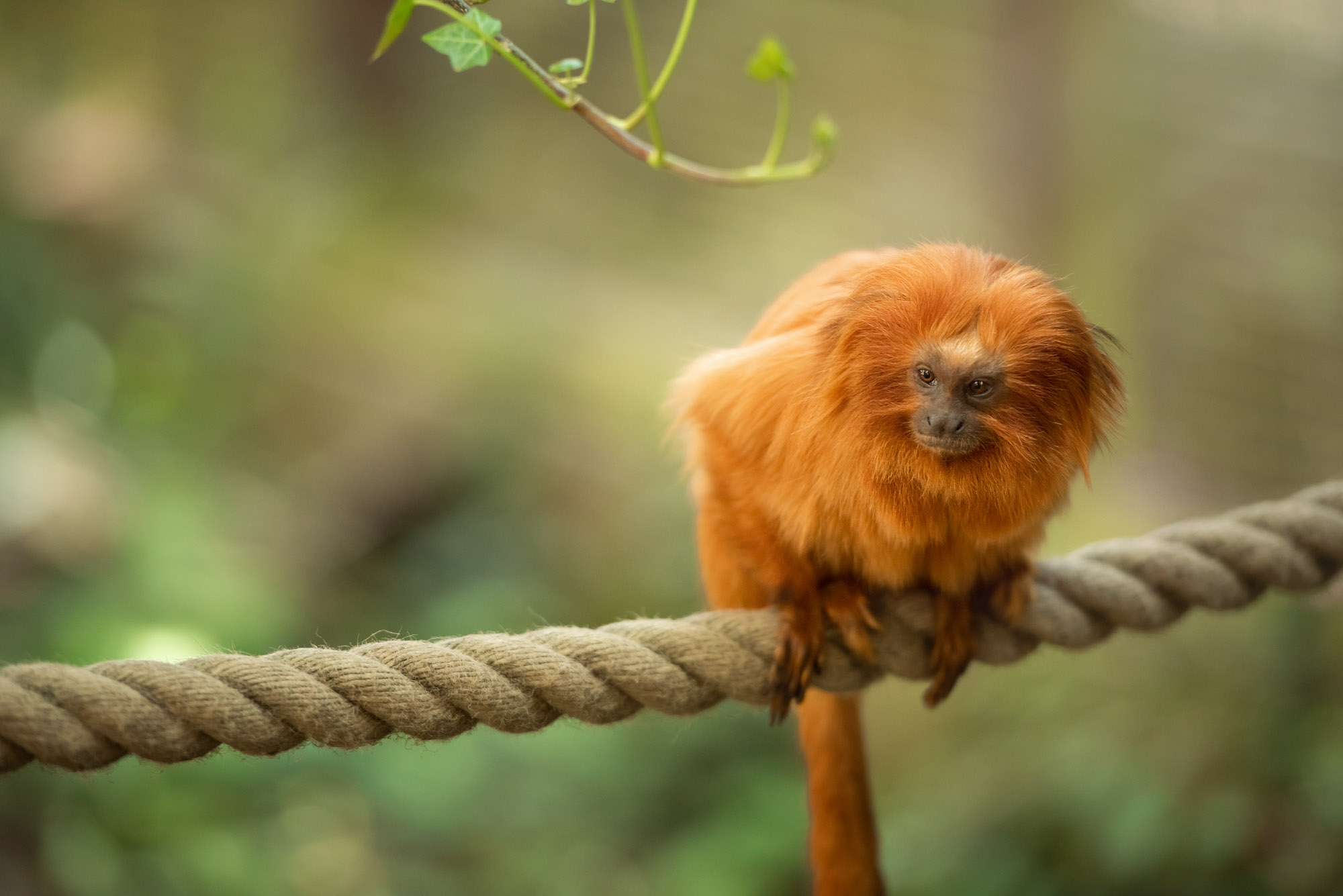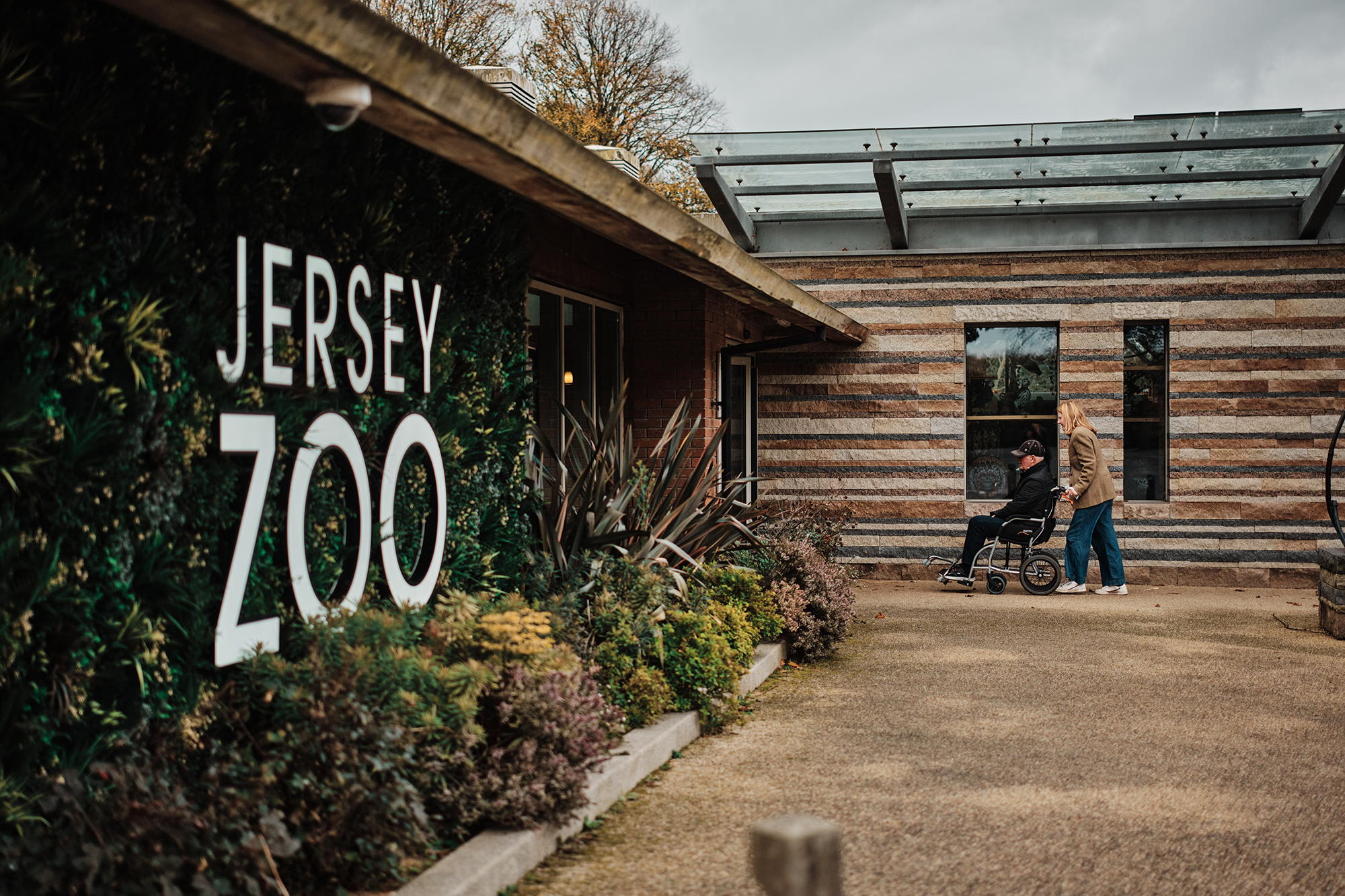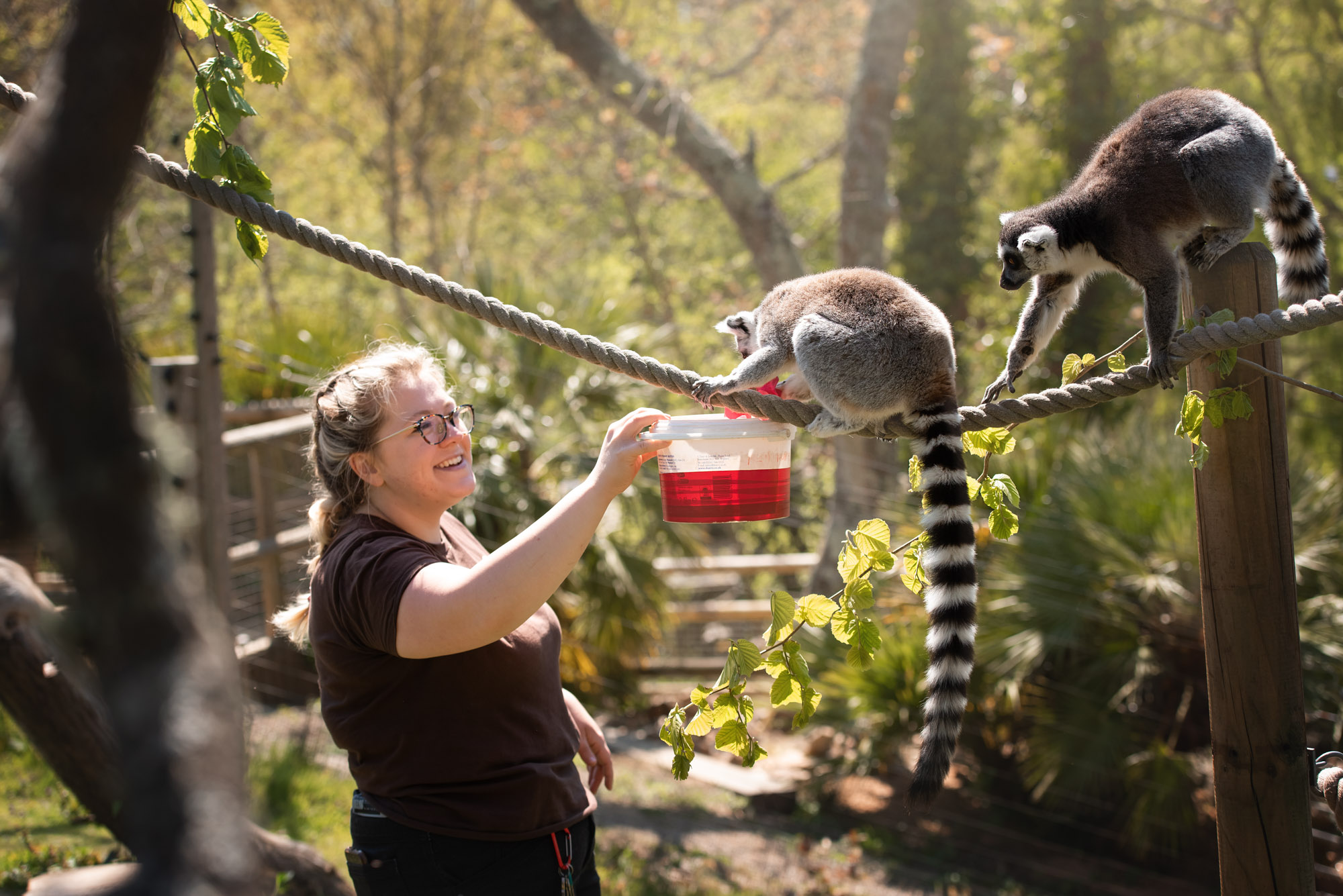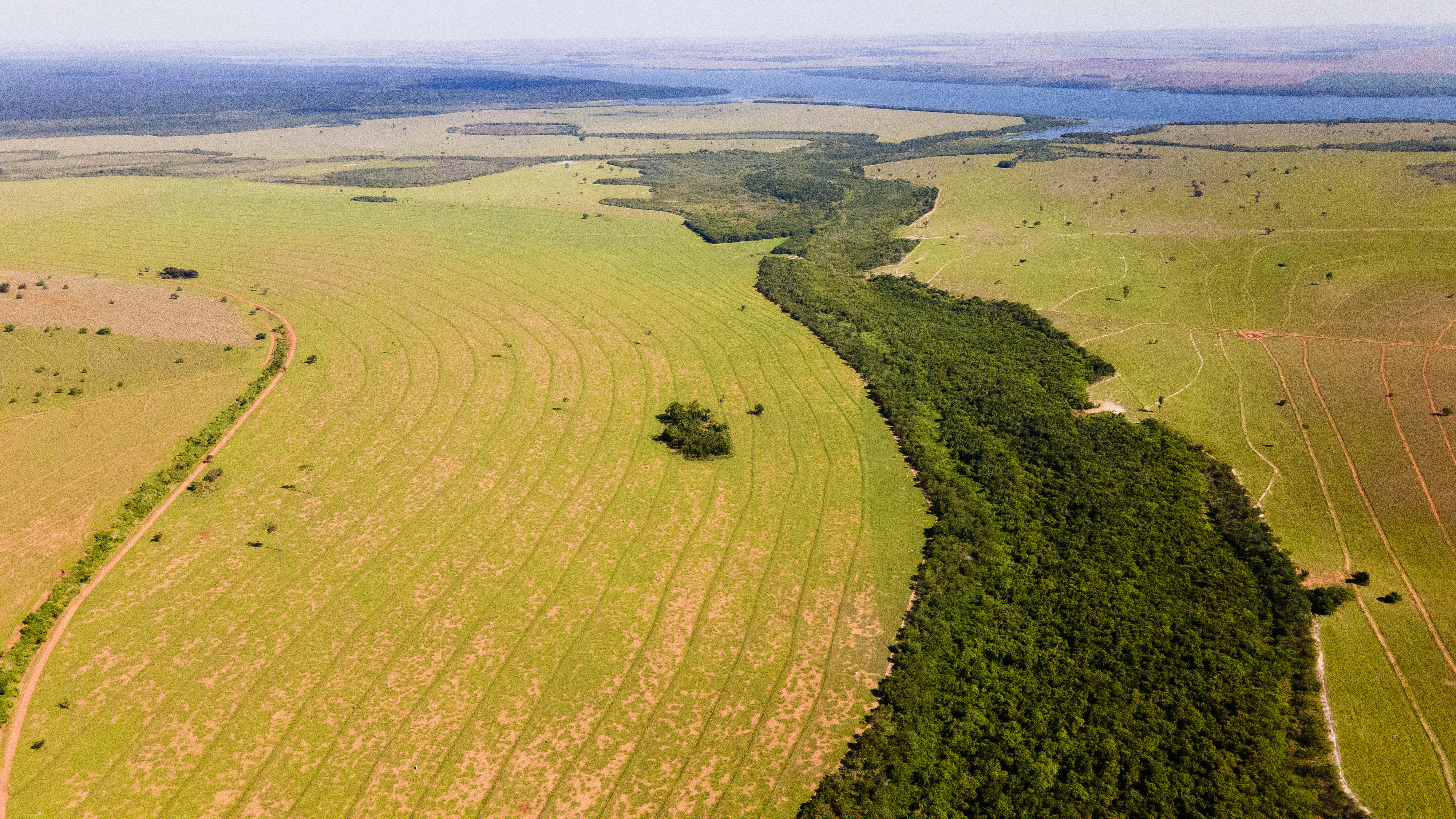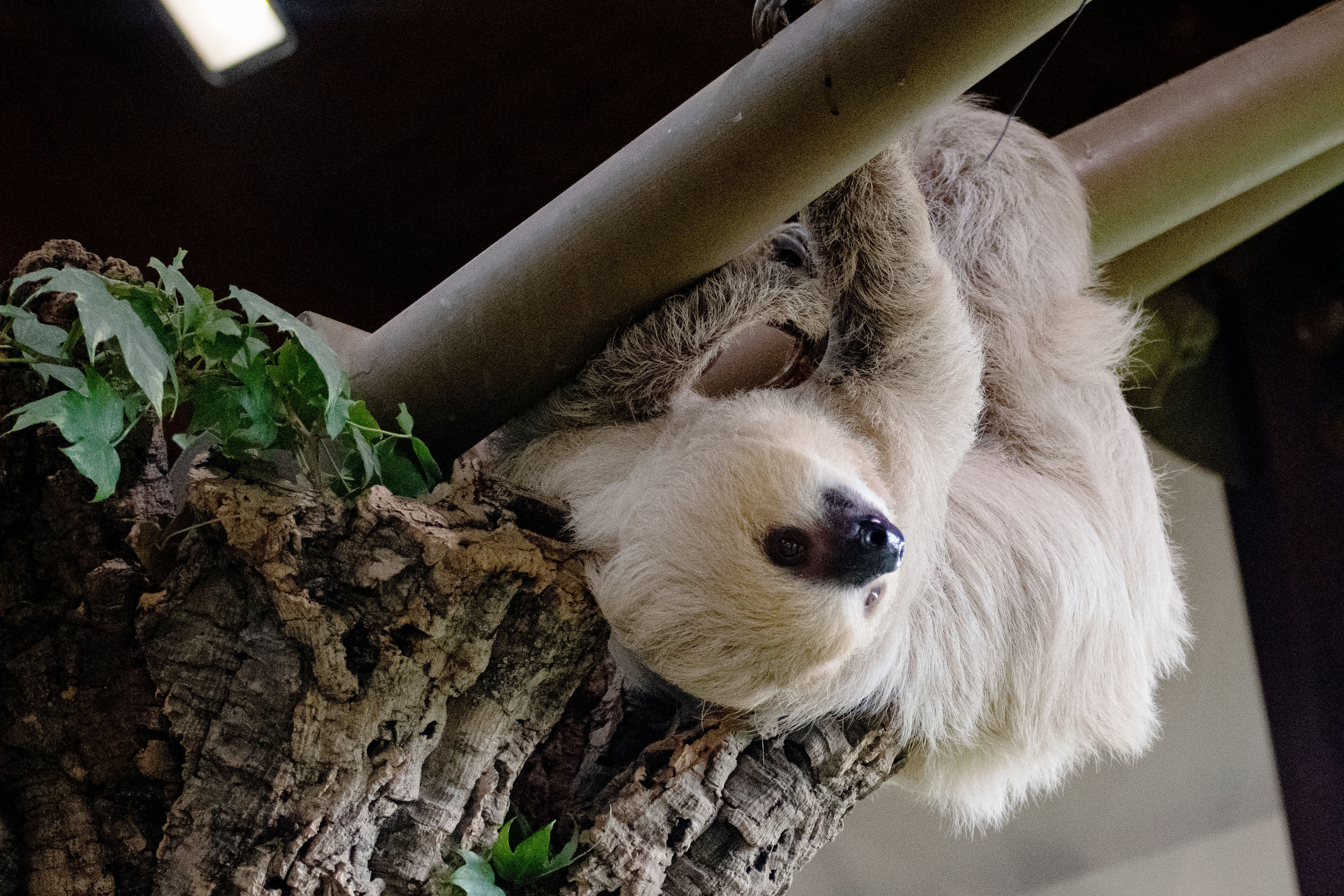Meet the aye-aye to appreciate their amazing adaptations!
Enter the night-time world of the Aye-aye House and see if you can spot the animal that fascinated Gerald Durrell enough to write a book about it!
Aye-ayes are lemurs but look nothing like their relatives. With big eyes and ears that move independently to sense even the slightest noise in the darkness, aye-ayes use their extra long skeletal middle finger to find food by tapping logs and listening for the sound of bugs inside.
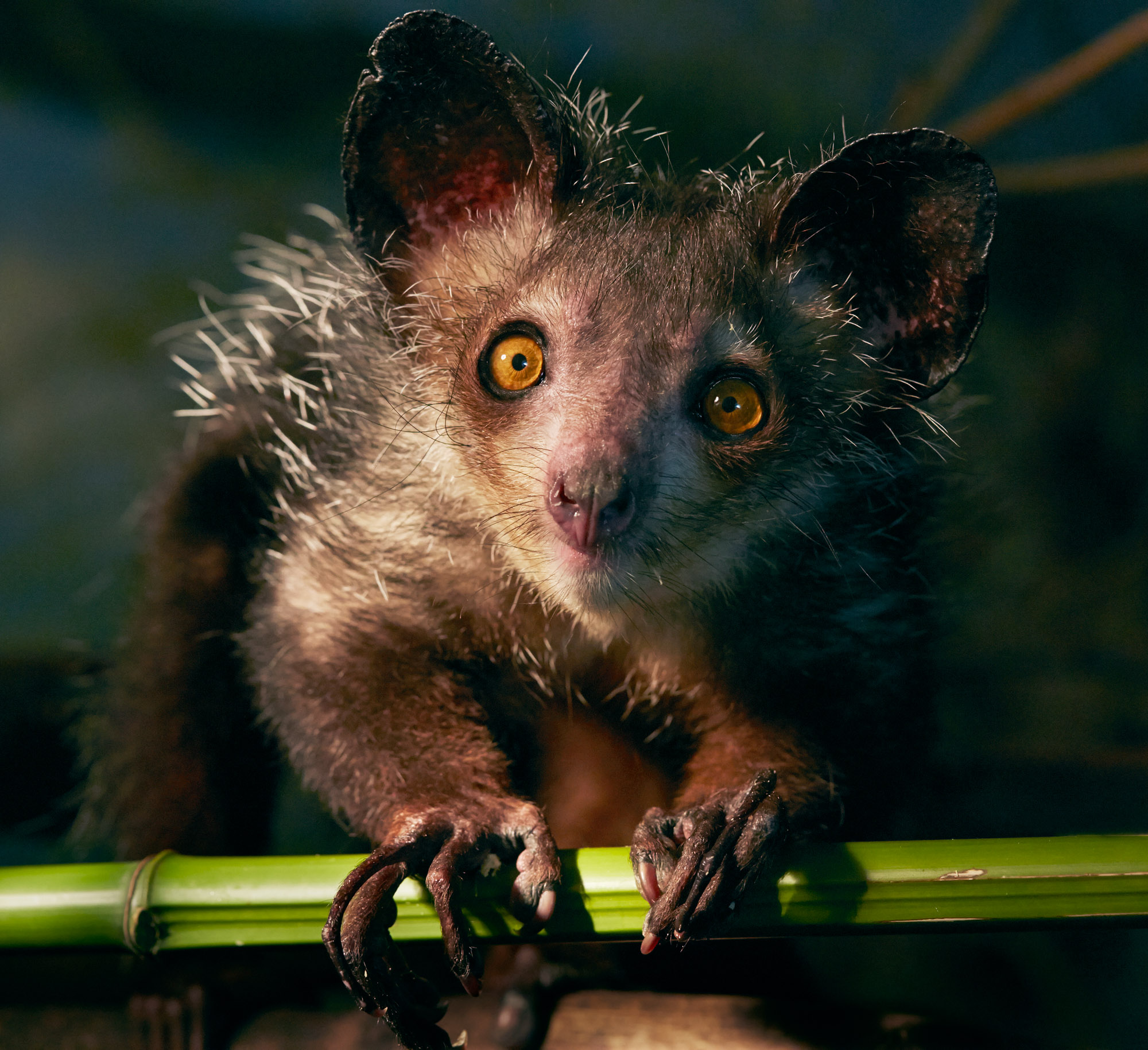
40+
estimated lifespan
2
extra-long fingers
50cm
adult tail length
Drumming for their dinner
Aye-ayes have a very unique feeding behaviour called ‘percussive foraging’. They use their long middle finger to repeatedly tap on logs and listen for the sound of grubs moving inside.
When they hear one, they’ll chew a small hole in the log and then use their long finger to pull out their meal. The only other species in the world that has been observed doing this is the striped possum.
Understanding the world’s most unusual primate
Very little was known about the aye-aye before they were kept in captivity.
Their odd appearance and unique behaviours led many people in Madagascar to believe they were the omen of death and evil, which led to their persecution.
There is now more hope for the aye-aye, with some Malagasy communities dedicated to protecting this nocturnal lemur.
Help us care for our aye-ayes

